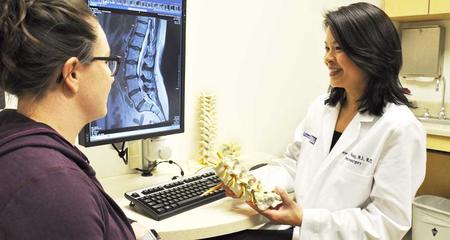- How does a brain tumor affect the brain?
- How does chemotherapy affect the brain?
- How can surgery or radiation affect the brain?
- Do all people with brain tumors experience cognitive changes as they go through treatment?
- What is neuropsychology?
How does a brain tumor affect the brain?
With a limited amount of space in the skull, the growth of a tumor can damage brain tissue and change the way the brain works. Brain tumors can also destroy healthy tissue as it grows. Any cognitive and/or behavioral changes that occur depend on the size, type and location of the tumor. These changes may be temporary and go away over time, or improve with treatment. Cognitive changes can also be longstanding and in some cases permanent. Whether cognitive changes will improve depends largely on their cause.
How does chemotherapy affect the brain?
Chemotherapy is used when cancer has spread in the body. It is a systemic treatment, which means it goes through the entire body and affects every cell. Therefore, chemotherapy will reach brain cells. Chemotherapy is also used to directly treat certain types of brain tumors often in combination with radiation therapy. Increasing evidence suggests that chemotherapy affects the brain and central nervous system. The damage, which may be temporary, depends on the type of chemotherapy used, how long it is given, and whether it is combined with other forms of treatment.
How can surgery or radiation affect the brain?
During surgery and radiation therapy to the brain, healthy brain tissue near a tumor may be damaged. Surgical removal of healthy brain tissue, which is often unavoidable when removing a brain tumor, may cause cognitive changes directly attributable to the area of the brain removed or damaged. Surgery may also lead to improvements in cognition by reducing swelling and pressure inside the head. Radiation therapy to the brain may damage the “white matter” tracts in our brain, which are very important for rapid communication between brain regions, as well as affect blood vessels in our brain. These changes can cause cognitive symptoms as well.
Do all people with brain tumors experience cognitive changes as they go through treatment?
No. Not all patients will experience cognitive symptoms as they go through treatment. In some cases, cognition can actually improve while going through treatment, especially if the tumor responds to treatment and shrinks. In other cases, cognition can decline; when this happens it can be transient or more longstanding.
What is neuropsychology?
Clinical neuropsychology involves the diagnosis of changes in cognition (thinking) and behavior after known or suspected brain damage. It is a clinical specialty within Neurosciences at Froedtert & the Medical College of Wisconsin. A neuropsychological evaluation can identify the nature of behavior changes, understand the consequences of these changes in daily life and contribute to effective treatment.
What is a neuropsychologist?
A neuropsychologist is a licensed psychologist with an advanced degree in psychology (PhD) who specializes in the effect of brain injury on behavior and cognition. He or she identifies ways to help people relearn and/or compensate for neurological functions that are impaired. A neuropsychologist has special training and experience in how the brain functions. He or she conducts tests and research to explain the relationship between brain activity and behavior, and to understand how functions within the brain influence thinking, learning and emotions. A neuropsychologist studies the impact that brain damage can have on a person’s functioning and abilities. He or she evaluates patients for cognitive changes and, after analyzing test results, makes recommendations for treatment (e.g., cognitive rehabilitation, counseling and medications) to help patients regain as much function as possible.
Virtual Visits Are Available
Safe and convenient virtual visits by video let you get the care you need via a mobile device, tablet or computer wherever you are. We’ll gather your medical records for you and get our experts’ input so we can offer treatment options without an in-person visit. To schedule a virtual visit, call 1-866-680-0505.
More to Explore





